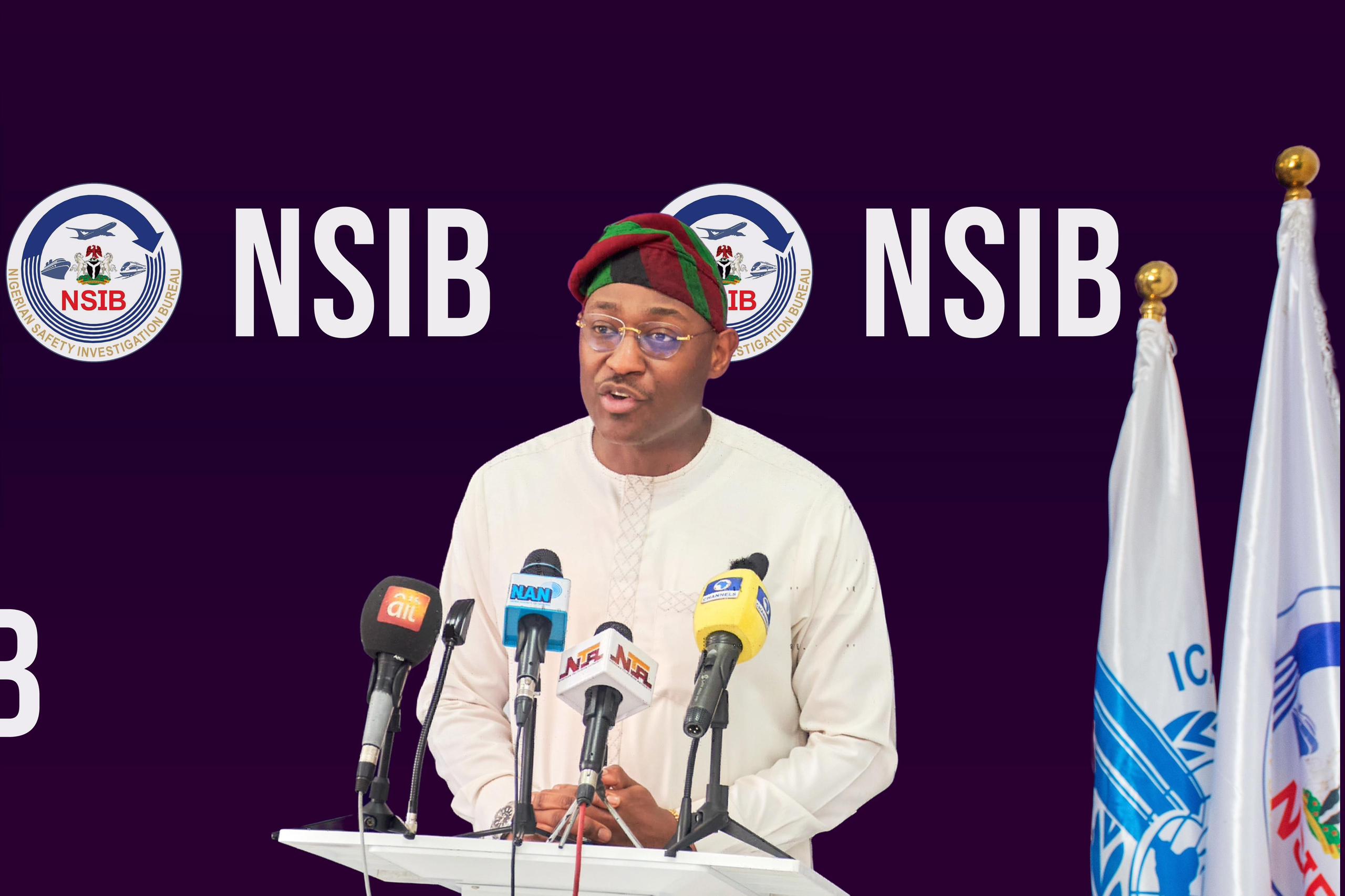NSIB Champions Unified Safety Vision Across Nigeria’s Air, Rail, Maritime Sectors

…Finalises Landmark Regulations to Enhance Multimodal Accident Investigations
The Nigerian Safety Investigation Bureau (NSIB) has reaffirmed its commitment to a safer and more resilient transport system across Nigeria by advancing regulatory frameworks and adopting a harmonised, mode-agnostic approach to accident investigation across air, rail, maritime, and other land transport modes.
Speaking in Abuja, the Director General and Chief Executive Officer of NSIB, Capt. Alex Badeh Jnr, stated that the Bureau is setting a new benchmark for multimodal transport safety oversight in Nigeria, guided by international best practices and driven by the NSIB Act 2022.
“The goal is not merely to investigate accidents,” Capt. Badeh said, “but to ensure that every finding and every safety recommendation becomes a cornerstone for safer transportation in Nigeria. Our regulations are not only about compliance; they are about relevance—relevance to our waterways, rail systems, and the millions of Nigerians who depend on them daily.”
The Bureau is in the final stages of developing two landmark regulatory frameworks—the NSIB Casualty Investigation Regulations for the Maritime Mode of Transport and the Rail and Track Accident Investigation Regulations—aimed at deepening its oversight functions and enhancing national safety standards.
The maritime regulations, modelled after the International Maritime Organization (IMO) Casualty Investigation Code, are designed to standardise how Nigeria investigates accidents on its inland waterways, in ports, and on Nigerian-flagged vessels.
Likewise, the rail safety regulations are tailored to fit Nigeria’s evolving railway network and geographic considerations, drawing on global norms for accident investigation in the rail sector.
These developments build on NSIB’s ongoing implementation of ICAO Annex 13 standards for air accident investigations—a move that has already helped to improve Nigeria’s aviation safety record and regulatory capacity.
By extending this standardised, independent methodology to rail and marine transport, the Bureau is fostering a unified safety culture across Nigeria’s entire transport system.
According to the Bureau, the new regulations are a product of extensive consultation and field visits to jetties, ports, inland waterways, and rail infrastructure across the country.
This inclusive and practical approach, the Bureau notes, has ensured that the regulations are both adaptive and grounded in Nigeria’s unique operational realities, free from “theoretical ambiguities.”
However, Capt. Badeh underscored that the successful implementation of NSIB recommendations rests heavily on cooperation from key stakeholders.
The Bureau is calling on agencies such as the Nigerian Maritime Administration and Safety Agency (NIMASA), Nigerian Ports Authority (NPA), Nigerian Shippers Council, National Inland Waterways Authority (NIWA), National Oil Spill Detection and Response Agency (NOSDRA), and the Nigerian Railway Corporation (NRC) to begin proactively preparing for the adoption of the forthcoming safety regulations.
“Safety recommendations are not mere reports; they are calls to action,” said Capt. Badeh. “The effectiveness of any investigation is measured not by how well it is written but by how well it is implemented. We urge our partner agencies to view this as a shared mission for national safety.”
He further emphasised that insights gained from transport incidents must not be viewed in silos but integrated across all transport sectors to form a national benchmark for proactive safety measures.
In the coming weeks, as the new regulatory instruments are formally presented, the NSIB has pledged to continue its outreach to sensitise both agencies and the public on their critical roles in shaping a safer transport ecosystem in Nigeria.
“As the country expands its transport infrastructure in pursuit of national development, ensuring safety must be a top priority,” Capt. Badeh affirmed. “The NSIB is ready to serve not just as an investigator of past tragedies but as a catalyst for a future where every Nigerian can travel with confidence and peace of mind.”
The Bureau reiterated its dedication to global standards, transparency, and collaboration in building a transport system that is not only efficient, but fundamentally safe for all.







